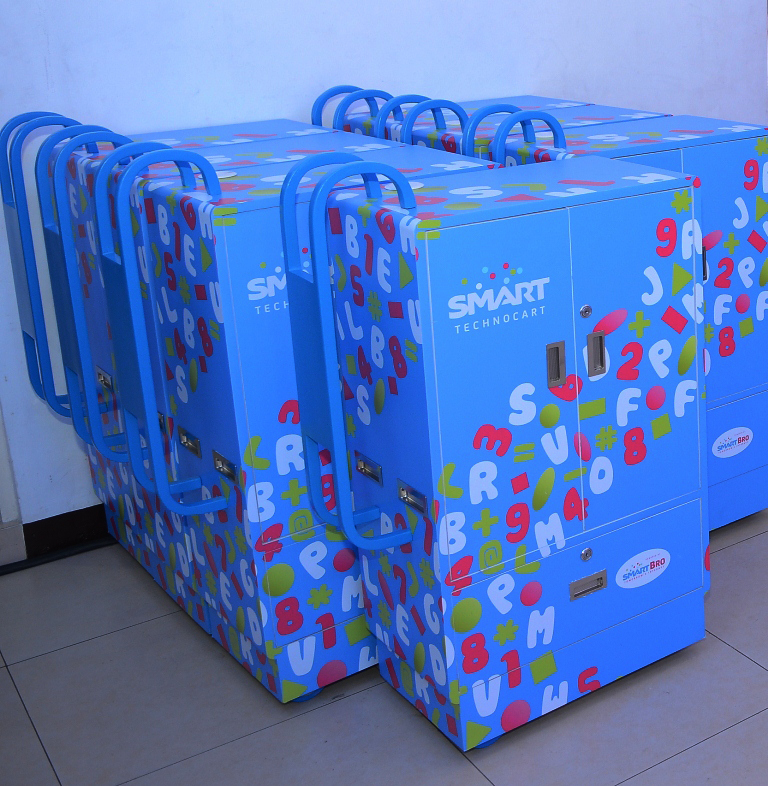The use of computers and mobile devices in schools is becoming more of a necessity than luxury. But schoolchildren in far-flung areas don’t have access to the Internet or mobile devices.
The government and private sectors have been building partnerships to address the problem and to allow schoolchildren keep up with the growing digital community and make better use of technology in their studies.
Smart Communications (Smart) recently “relaunched” its project “Smart TechnoCart,” a mobile digital laboratory that teachers and Kindergarten pupils can use.
“There is a sense of inevitability” in terms of using mobile devices in schools, said Ramon Isberto, head of public affairs of Smart. “We have to make an effort to make technology an effective tool for learning.”
In 2013, Smart commissioned a study on the use of tablets for learning among kindergarten pupils of Culiat Elementary School in Quezon City.
The telco loaned tablets that children could use for 30 minutes a day. Tools like learning mobile applications on colors, shapes, alphabets, and numbers were preloaded into the devices.
The study revealed that after three months, learning outcomes of pupils have improved significantly compared to the previous quarter when it was only the teacher explaining the concepts to the pupils.
Each Smart TechnoCart contains 25 tablets for the use of students; a tablet, laptop and projector for the use of the teacher; Smart Bro pocket Wi-Fi with load for connectivity; and the Smart One Campus, a learning management system to help administrators and teachers track and measure their students’ academic performance.
The training tablets for teachers are equipped with child and curriculum development provided by the Community of Learners Foundation (COLF).
Fely delos Angeles-Bautista, founder and director of Community of Learners Foundation, hopes that through the TechnoCart mobile digital library, the quality of Kindergarten learning program will improve.
Batibot app
Batibot is making a return this time on the digital platform as an app, which is already preinstalled on the tablets in the TechnoCart.
“Batibot,” a popular children’s television show in the 1990s, was conceptualized by COLF.
Startup company OrangeFix created the Batibot app.
“It’s time to lead back our children to (speaking) Tagalog,” said Fely delos Angeles-Bautista, founder and director of COLF.
Batibot characters familiar to ’90s kids will now be introduced to the young generation through the app. They will be “helping” kids learn the basics and make it an experience-based learning.
Bautista hopes that through the app and the TechnoCart mobile digital library, the quality of Kindergarten learning program will improve.
The Department of Education identified 15 schools as recipients of Smart TechnoCart, and they include Batu-Batu Central Elementary School, Datu Halun Laboratory Elementary School, Yusop Dais Elementary School (Tawi-Tawi), Calasiao Central School, Mangatarem Central School (Pangasinan), Bacacay East Central School, Polangui South Central School (Albay), Maluso Central Elementary School, Tipo-Tipo Central Elementary School (Basilan), Antonio L. Jayme Elementary School, Education and Training Center School II, Rodolfo A. Medel Sr. Elementary School (Bacolod), Banilad Elementary School, Regino Mercado Elementary School of (Cebu), and Parañaque Central Elementary School (Metro Manila).
Smart TechnoCart is part of the telecommunications company’s LearnSmart program, which has implemented various initiatives aimed at enhancing Philippine education across the learning stages.
